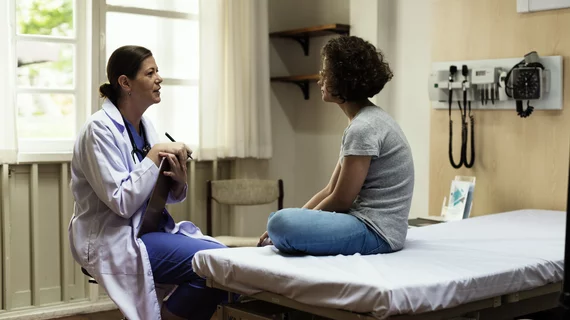Individualized communications increase colorectal cancer screening completion
Tailoring colorectal cancer communications to specific demographics can increase screening rates, according to new research published in JAMA Network Open.
Participants included in the study who received individualized communications pertaining to their risk of developing colorectal cancer were 34% more likely to complete the cancer screening than those who were offered standard referrals. Those involved with the study suggest that these types of targeted messages encourage positive health behaviors.
“A tailored message intervention and a generic message intervention were both significantly more effective at increasing colonoscopy scheduling and colonoscopy completion rates at 120 days compared with usual care,” Michael L. Kochman, MD, from the Division of Gastroenterology and Hepatology at the University of Pennsylvania Perelman School of Medicine, and co-authors wrote. “Our study showed that there was an increase in the proportion of participants who scheduled colonoscopy based on the amount of interaction with the study team.”
There are multiple ways to screen patients for colorectal cancer, including colonoscopy and computed tomography colonography. Different screening methods benefit different individuals based on many factors and refining patient communications so that they have a thorough understanding of what is available to them increases participation, the experts found.
For the study, researchers recruited 600 participants who were eligible for CRC screening and divided them evenly into three segments—receiving the usual care regimen, generic messaging or tailored communications. The usual care group received a letter in the mail instructing them to call and schedule their screening. The generic message group was contacted via telephone, completed an assessment and received a uniform message encouraging scheduling. The tailored group also received a phone call and completed an assessment, but researchers used information from both to create a message tailored specifically to the participants’ identified cohort.
These measures resulted in a significant number of participants from the generic and tailored groups completing screenings within 120 days of being contacted. The generic group saw a 32% screening increase, while the tailored group observed a 34.5% boost. In the usual care group, 18.5% of participants went through with screenings.
“Tailored and generic message interventions for segmented individuals increased colonoscopy rates compared with usual care,” the authors wrote. “It remains important to individualize health-related messages and deliver patient-centered care to increase positive health behaviors, such as CRC screening.”
Related cancer screening content:
Lung cancer screenings are proven to save lives, but disparities remain, experts discover
New data on false positive rates for DBT and DM screenings
Radiologists should be mindful of extracolonic findings on CTC scans of cancer patients
Mayo Clinic offers new guidance on supplemental screening of women with dense breasts
Q&A: What updated reimbursement policies could mean for CT lung screening rates in the United States

